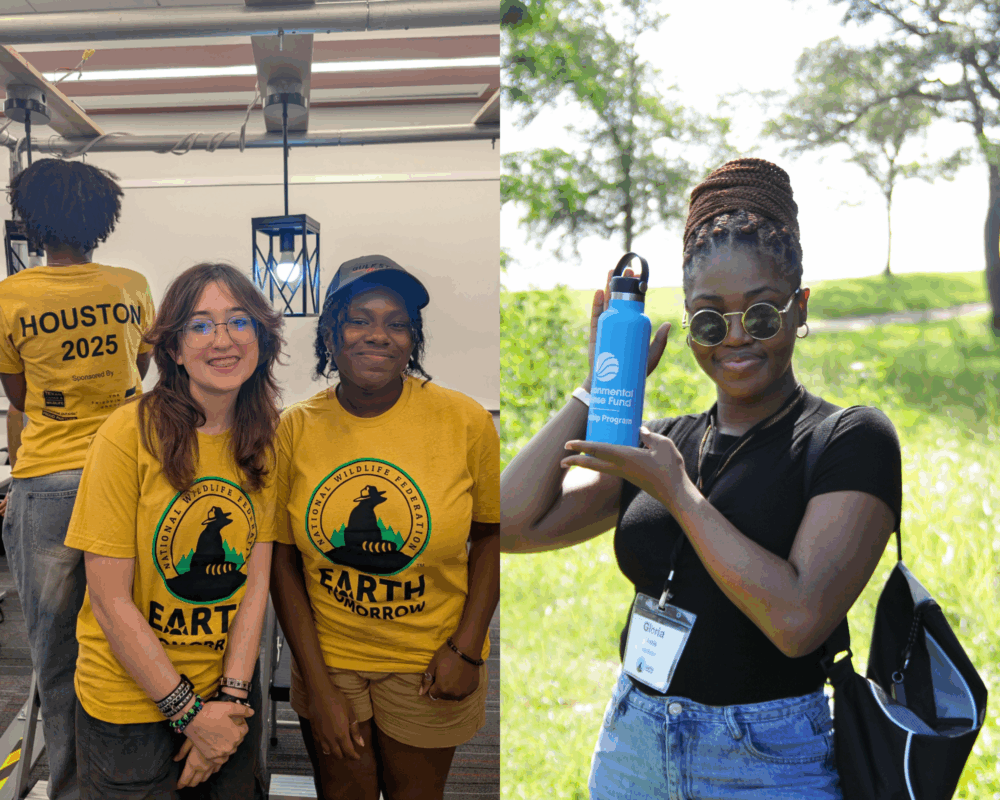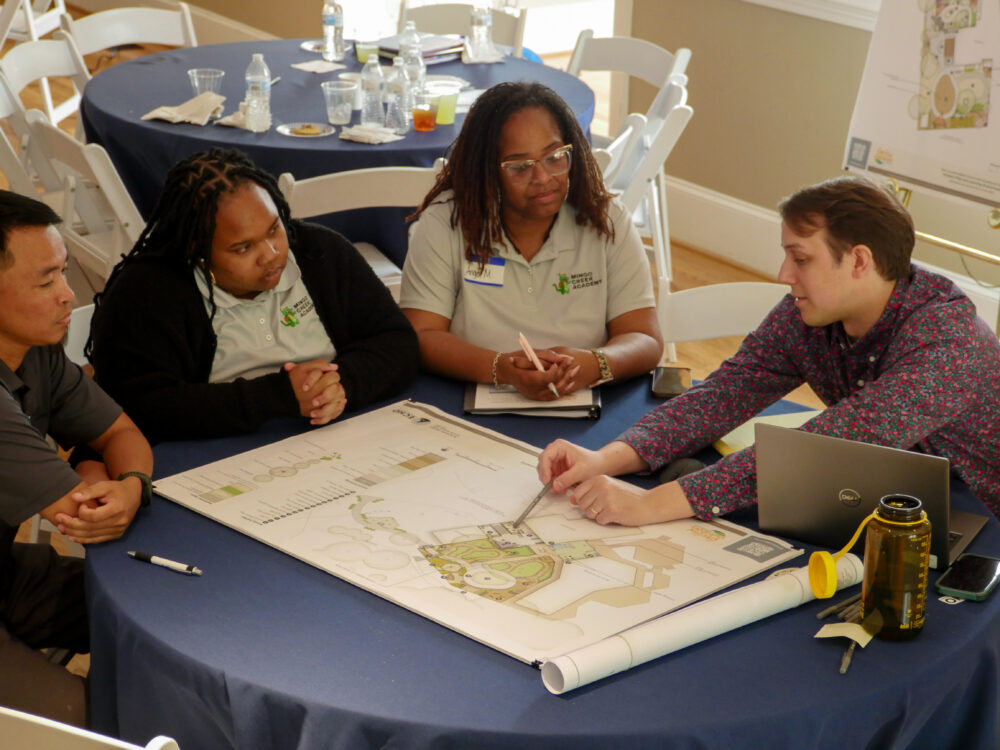We have much more to do and your continued support is needed now more than ever.
Service Learning Takes a Climate Approach
As colleges and universities across the country address their carbon footprints, Warren Wilson College (WWC) is taking climate action past the confines of campus. INSULATE!, a service-learning project which gets students’ hands dirty, is designed to help local elderly and low-income residents cut their energy bills and carbon emissions.
The North Carolina Sustainable Energy Association reported that in 2008 NC households with incomes below 50% of the national poverty level spend 59.3% of their annual income on energy. Homes older than 10 years consume up to 60% more energy than newer homes. In Buncombe County alone (the location of WWC) over 44,000 people live below the poverty line and spend upwards of 20% of their income on energy costs.
To address this need, WWC student workers have been recruited to complete home retro-fitting and collect pre- and post-data to determine true reductions in greenhouse gas emissions. Expertise comes from partnerships with local professionals who conduct free energy audits and home energy retrofits. The overall operation of the program is managed by students in the Environmental Leadership Center. Long term, on-going tracking continues with each home.
On a typical project, students, local professionals and volunteers work to seal off any air leakage in the house with the goal of creating the tightest envelope possible. This is done by wrapping water heaters, caulking floorboards and ceilings, weatherizing windows and blowing insulation into notoriously leaky areas such as chimneys and air ducts.
Since its beginning in fall 2008, the program has completed three houses with plans to tackle five houses in five days during spring break of 2009. The first house the students weatherized belongs to 79-year-old Helen Munn who has lived alone in her home since the passing of her husband in May. Last winter she spent a quarter of her income on heating with fuel oil. The goal for Helen’s house was to reduce the home’s airflow to 2,753 cubic feet per minute (CFM). The initial reading of the house was 3,607CFM. After energy retrofits the post-INSULATE! reading was 2,723CFM, exceeding the goal.
Even in its beginning stages there has been a great deal of enthusiasm surrounding the program both on campus and in the region. City of Asheville Mayor Terry Bellamy demonstrated the community’s support by signing a proclamation declaring October 30, 2008 to be INSULATE! Day.
The student workers are also finding great value in the work. Nina Otter, student INSULATE! leader, comments, “This program is really a direct action to help prevent the need for an energy demand that is really destroying the integrity of our environment. To link that with people in need, I think, is really powerful.”
This effort on behalf of WWC and partner organizations addresses climate change from a deeply rooted sustainability ethic. Margo Flood, Director of the Environmental Leadership Center of WWC expresses the depth of the program: “INSULATE! galvanizes higher education, federal and state agencies, private partners and municipal leadership to meet this complex need. It attends to economic, environmental and equity issues and embodies, in every way, sustainable community action.”
As enthusiasm and momentum continue to build around this effort the INSULATE! team is working to find a way that their program can serve as a model for other colleges and organizations to start similar programs in their region.




















